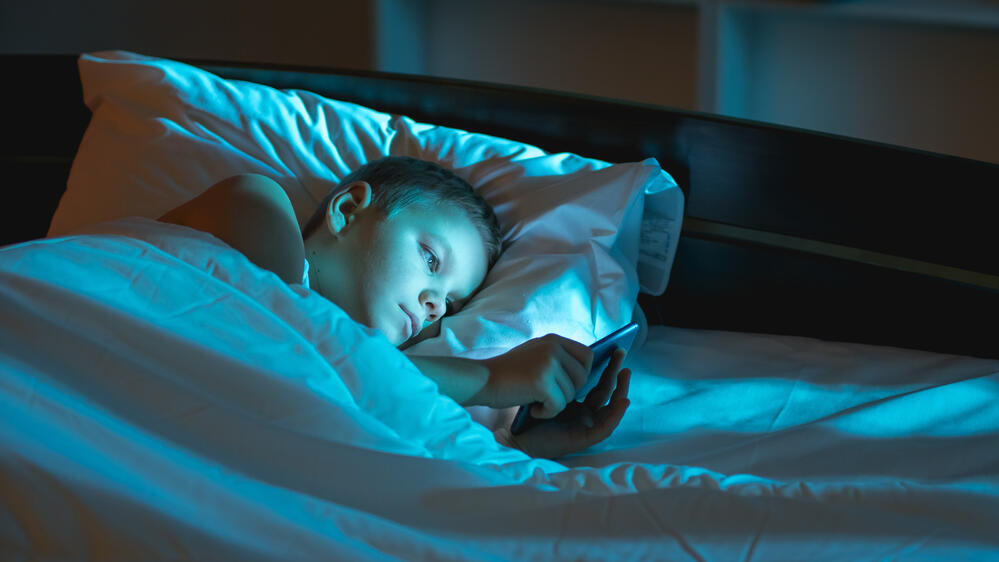More than addiction: How screens and social media reshape our minds
In today’s world, it’s nearly impossible to avoid screens. From smartphones and tablets to televisions and computers, children are exposed to digital devices from an early age—and often for hours each day. But while the convenience of digital entertainment is undeniable, experts warn it comes at a steep cost.
Chava Treitel, head of R&D at the “Attention Revolution” initiative, paints a concerning picture of how screens—particularly those used during early childhood—can fundamentally alter brain development, shorten attention spans, and disrupt emotional and social growth.
“Early and prolonged exposure to screens interferes with how the brain develops,” Treitel explained in an interview with Ynet. “From ages zero to six, a child’s brain is extremely sensitive.
“The way it learns to process the world is through sensory input—touch, movement, sound, eye contact, facial expressions. Screens provide artificial stimulation that floods the brain and doesn’t allow it to develop the capacity to tolerate boredom or process subtle cues.”
Treitel warned that, when young children become used to the fast-paced, highly stimulating content on screens, their nervous systems struggle to adjust to real-life situations. “They enter classrooms expecting the same kind of excitement they get from a screen. When they don’t get it, they disengage. That’s when we start to see attention disorders.”
According to Treitel, the dopamine surges children receive from digital content alter the reward system in the brain. “Screens program the brain to seek fast and frequent rewards. Real-life learning doesn’t work like that—it’s often slow, cumulative and requires effort. But when kids get used to being rewarded instantly, they lose motivation for slower, more meaningful tasks.”
She also pointed to a growing emotional gap in children raised on screens: “Kids are struggling to identify and process emotions. When you don’t look someone in the eye or read their facial expressions—because you’re staring at a screen—you don’t develop empathy in the same way. And later, that can manifest in trouble connecting with others.”
4 View gallery


Chava Treitel: Early and prolonged exposure to screens interferes with how the brain develops
(Photo: Avi Ikon)
Beyond the cognitive and emotional impacts, excessive screen time is taking a toll on physical health. “Children today are moving less and that’s a real problem,” Treitel warned. “We’re seeing more cases of muscle weakness, delayed motor development, scoliosis and even eating disorders in children and teens who spend hours on screens.”
Poor posture while hunched over smartphones, combined with a lack of physical activity, contributes to a host of musculoskeletal issues. “The human body wasn’t built to sit still and stare downward all day,” she said. “Movement is essential for healthy development—and not just for the body. Movement also regulates mood, supports learning and strengthens neural connections.”
Treitel stressed that not all screens are created equal. “TV and digital media don’t have the same effect. Television forces you to sit through a relatively long narrative that you didn’t choose, which requires attention and patience. Digital media, on the other hand, gives you total control—you can skip, scroll and jump to the next thing instantly. That rewires the brain to expect novelty every few seconds.”
The result, she said, is a significant reduction in our ability to concentrate for extended periods. “And without sustained attention, we can’t engage in deep thinking. That’s a serious problem for learning and emotional regulation.”
The digital age has also introduced a surprising new fear: boredom. “That’s something we didn’t see before the 2000s,” said Treitel. “In the past, kids knew how to entertain themselves using imagination. Between the ages of two and seven, that’s a critical skill to develop—but today’s kids often don’t get the chance to practice it.”
Even adults are affected. “When you used to go on long drives, you’d daydream or reflect. Now we fill every gap with our phones. That shift damages our ability to engage with our own thoughts and we become reliant on external stimulation.”
“The effect of screens on sleep is enormous,” Treitel warned. “Studies consistently show that using screens before bed reduces sleep quality—especially in teens. There are two main reasons: the blue light emitted by screens interferes with the body’s natural melatonin production, and the brain needs time before sleep to process the day’s experiences. If that process is skipped, people often wake up anxious or unrested.”
She recommends banning digital devices from bedrooms entirely—especially for teenagers—and cutting off screen use at least two hours before bedtime.
How much screen time is too much? Treitel offered age-specific guidelines:
• Ages 0–2: Avoid screen time entirely. If necessary, only with adult supervision.
• Ages 3–6: Limit to 60–90 minutes per day, with an adult present to help interpret the content.
• Elementary school: Up to two hours daily.
• Teens and adults: No hard limit but pay close attention to the type and timing of content.
She added that teens are especially vulnerable to screen-induced sleep problems. “Between ages 13 and 18, the brain undergoes synaptic pruning—a critical process that mostly happens during sleep. Excessive digital use during this time can interfere with that development.”
Can the damage be reversed? “The good news is that the brain is adaptable,” said Treitel. “It’s never too late to change your digital habits and see improvement. But some abilities—like attention regulation and emotional resilience—have specific developmental windows.
“If those windows are flooded with screen time instead of real-life engagement, the effects can show up later in life in ways that are harder to reverse.”
Treitel offered simple ways to reduce screen dependence:
• Toddlers (under 2): Bring small toys, books or sensory objects to places like restaurants or waiting rooms instead of giving a screen.
• Children (up to 12): Establish screen-free family rituals—such as meals or shared activities—and keep phones out of bedrooms.
• Teens: Use the “1-2-3 rule”: no phones in the bedroom, stop screen use two hours before bed and engage in one daily parent-child activity that reinforces self-worth and identity.
“Most importantly,” she added, “be the model. Children mirror their parents’ behavior. If they see you constantly on your phone, they’ll do the same.”
Treitel also urges parents to open conversations about digital life. “Ask your children what they’ve seen, where they’ve been online and if they need help with anything. The digital world is here to stay, but we can—and must—build a system of norms and protections that allows us to live in it in a healthier, more mindful way.”


